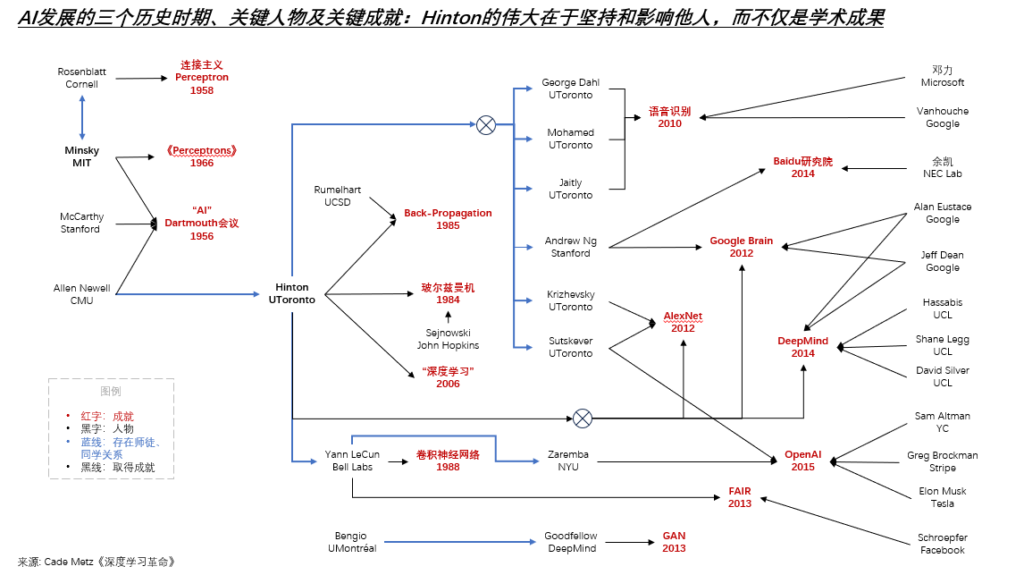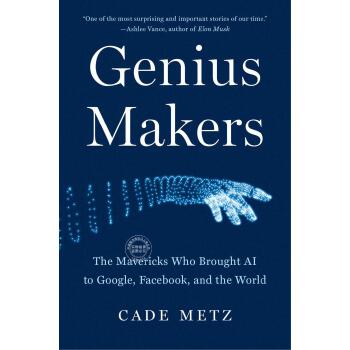Long dismissed as a technology of the distant future, artificial intelligence was a project consigned to the fringes of the scientific community. Then two researchers changed everything. One was a sixty-four-year-old computer science professor who didn’t drive and didn’t fly because he could no longer sit down—but still made his way across North America for the moment that would define a new age of technology. The other was a thirty-six-year-old neuroscientist and chess prodigy who laid claim to being the greatest game player of all time before vowing to build a machine that could do anything the human brain could do.
Cade Metz,《Genius Makers: The Mavericks Who Brought AI to Google, Facebook, and the World》
读了一本书,分享一张图。AI是个很小的圈子,而且是科研导向的,而不是市场导向的。如果要投AI项目,确实需要找科学家及其徒子徒孙。
三个历史时期:
一、60年代,罗森布拉特提出神经网络的雏形——连接主义,然后被他的中学同学明斯基所否定。明斯基作为那个时代的AI教主,开创了“AI”概念,但把这个领域引入了歧途。
二、80年代,经过20年的黑暗期,只有很少的人还在坚持连接主义:辛顿和他的合作者们提出了反向传播和玻尔兹曼机,LeCun提出了卷积神经网络。这些都为神经网络日后的成功打下了基础。
三、2010年代,又经过20年的沉浮期,辛顿的坚持结了果子。他不仅提出了深度学习概念,还让他的学生们把这项技术带入了产业界,被微软、谷歌、Facebook所接受,并演化出了DeepMind、OpenAI等,现在以及未来,主宰世界的公司。
在这个领域,精于商业模式创新和市场营销的互联网创业者,没有成为主宰者,国内更是被甩开得越来越远,即便Baidu早早就进行了布局。这是一个在科研圈子里发生的事情。
从下面的图可以看到,辛顿的作用是承上启下的,他见证了60年代的泡沫、80年代的消沉、10年代的疯狂。还可以看到,50年来,绝大多数的突破和创新都跟他有关,他就是这个图谱中的核心人物。他的坚持,并最终证明了他的坚持是正确的,这很了不起。更了不起的是,他能将他的坚持传播给其他人,尤其在他还没有被证明是正确的时候,这可以被称为伟大。


